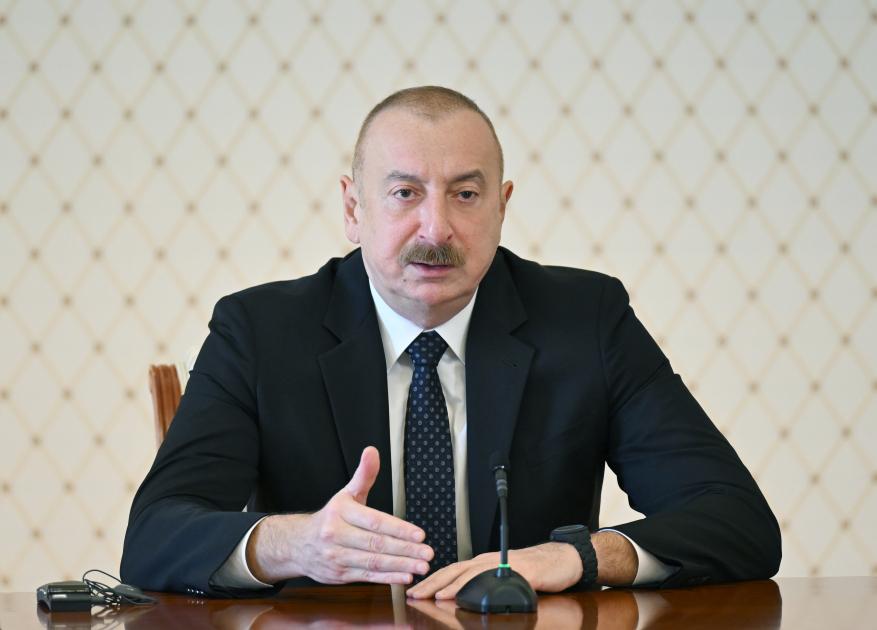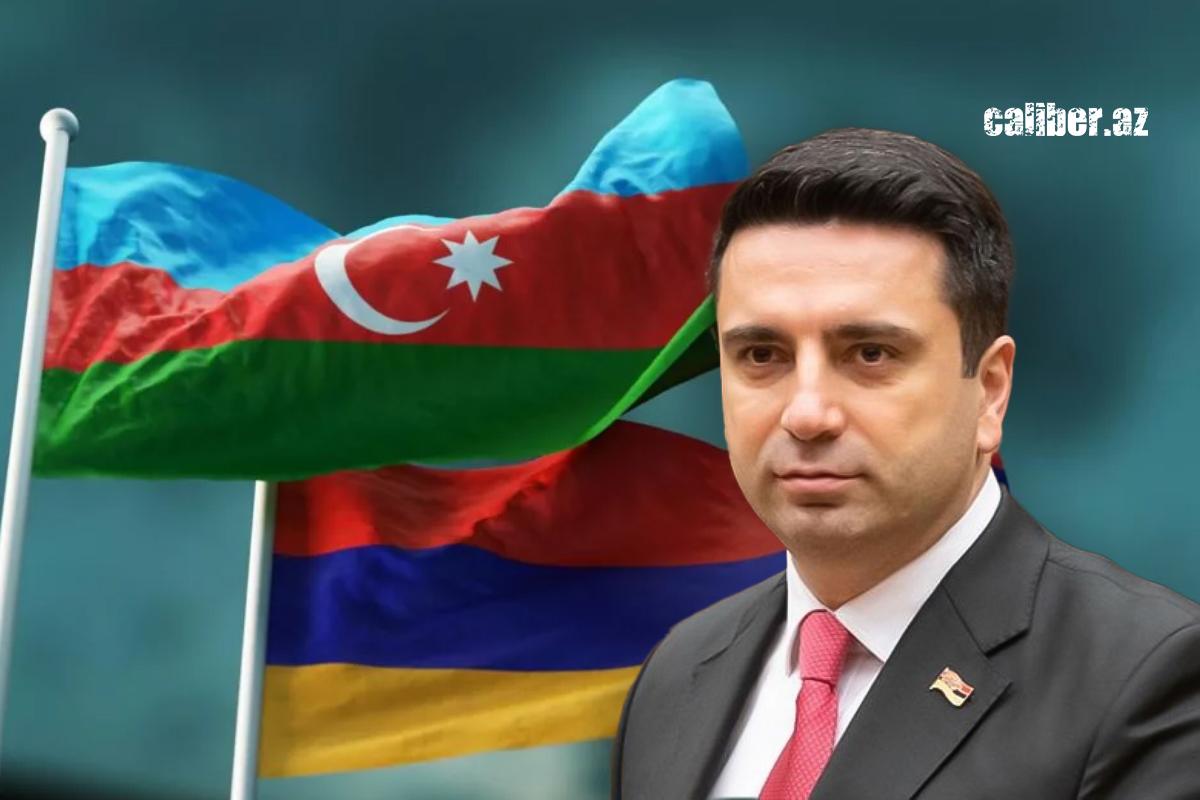Armenia's last hope or fading fantasy? The Minsk Group dilemma
Since the end of the 44-day war, Armenia has been frantically searching for something to hold on to in order to preserve some kind of “status” for the Armenians of Karabakh. At first they had, or imagined they had, four trump cards: the Armenian population of Karabakh, Armenian armed formations, the Russian peacekeeping contingent, and the absence of Azerbaijani administration in the zone of temporary responsibility of the Russian peacekeepers.
However, such systematic steps by Baku as the installation of the Lachin checkpoint and later anti-terrorist measures led to the capitulation of Armenian armed formations on the territory of Karabakh and separatist detachments, the self-dissolution of the junta and the voluntary resettlement of Armenians in Armenia. The Azerbaijani state restored its sovereignty in all of Karabakh, including Khankandi.
After that, all the hopes of the revanchists were connected only with the Russian peacekeepers, the presence of which, in their opinion, was supposed to guarantee the return of Armenians on their own terms. It seems that Moscow thought otherwise - why keep a military contingent if there are no more Armenians? And when the Russian peacekeepers left Karabakh and there seemed to be nothing left to cling to, it turned out that there was still a “saving straw” - in the eyes of the Armenian authorities, it was the OSCE Minsk Group.
How else can Yerevan's reaction to Azerbaijani President Ilham Aliyev's proposal to agree to the de jure abolition of the Minsk Group? Let us remind that Aliyev, speaking at a meeting with representatives of the parliaments of Turkic states, said: " There is no need for the Minsk Group and it is not functioning now. We will not allow it to operate de facto. It remains for it to be canceled de-jure, legally, and this will show how sincere Armenia is. If Armenia prefers to maintain the Minsk Group, then their territorial claims against us will be continued.”

And so answers began to come from Yerevan. However, not yet from the lips of Prime Minister Pashinyan, but from other officials.
"I think that the OSCE Minsk Group should be dissolved when there is peace between Armenia and Azerbaijan, when all issues are resolved and an agreement is signed. Only then we will be able to discuss this issue, it is definitely inexpedient to discuss this issue now,” said Armen Khachatryan, Deputy Chairman of the Armenian Parliament's Standing Committee on Defence and Security.
Parliament Speaker Alen Simonyan also confirmed in a conversation with journalists that the Armenian authorities are against the dissolution of the Minsk Group. According to Simonyan, “talk about the OSCE Minsk Group is the kind of talk that can be had after the signing of the peace treaty.”
However, the most eloquent statement was made by Gegham Manukyan, member of the Armenian Parliament from the "Hayastan" (Armenia) opposition faction, according to whom “the Minsk Group, although not functioning at present, is a legitimate format with a legal status for the protection of the rights of Karabakh Armenians”. The MP added that there is currently a conflict between Russia and the West, but it is possible that the geopolitical situation could change tomorrow. “Armenia should not give up this mandate, a legitimate mandate,” he emphasized. Finally, he said the following: “If there is still the Minsk Group, then there is also the Karabakh problem”.
This thesis is very easy to turn against Manukyan. If the Karabakh problem is related to the existence of the Minsk Group, then it turns out that this problem did not exist when there was no Minsk Group. If we take into account that the Minsk Group was formed in 1992, then, according to Manukyan's formal logic, it turns out that there was no Karabakh problem before that date. This sounds absurd. The Karabakh problem was initiated not by the Minsk Group, but by Armenia. But Azerbaijan dealt with Armenia on its own. And the Minsk Group is no longer needed.
This is in brief. Making such statements, Manukyan voices the idea that the main task of the Minsk Group was to find a mutually acceptable solution on the “status” of Karabakh Armenians. And that as long as the Minsk Group exists, the issue of the “status” of Armenians remains. And although Manukyan represents the opposition, judging by Simonyan's words, this is exactly how official Yerevan sees the picture.

However, this reading is also absurd. The OSCE Minsk Group is not an end in itself, but an instrument applicable only in a certain context. And this context is Azerbaijan's readiness to consider a peaceful solution to the former Karabakh conflict (including the “status” of Karabakh Armenians) within the framework of Azerbaijan's territorial integrity, which was fixed at the OSCE Lisbon Summit in December 1996. That is, Azerbaijan has never renounced the right to resolve the issue of its territorial integrity militarily.
This context has faded into oblivion. Armenia itself rejected the options of Baku's sovereignty over Karabakh, although Baku offered the Karabakh Armenians the highest status of autonomy, and thus rejected the possibility of a peaceful solution to the problem. As a result, Azerbaijan, supported by international law, has already unilaterally solved the Karabakh problem.
Thus, contrary to Manukyan's thesis, the opposite law is at work here: “No problem - no Minsk Group”.
However, the Armenian side is apparently trying to prove that there is a problem. If it persists in this endeavor, then perhaps we can really talk about the existence of a problem. Only it is not a problem of Karabakh and not a problem of the “status” of Karabakh Armenians, but a problem of Armenia's territorial claims to Azerbaijan.
And the more time passes from the day Azerbaijan restored its territorial integrity, the more blatant these claims will look in the eyes of the world community. If we think about it, the unwillingness to abolish the Minsk Group, however helpless it may be, is a phenomenon of the same order as the existence of the provision in the Armenian Constitution that “Karabakh is part of this country”. In the inflamed imagination of the revanchists, the Minsk Group would help Armenians endowed with “special status” to return to Karabakh and subsequently achieve some degree of autonomy for them. Such steps, as they imagine, would allow them to return to the conditional year 1988, when everything was just beginning....
Empty dreams. The “Iron Fist” has been gaining power for decades, not to unclench. Armenia's refusal to contribute to the abolition of the Minsk Group, as well as to remove territorial claims to Azerbaijan from its legislation, demonstrates official Yerevan as an aggressive country and will inevitably lead to an arms race that Armenia has no chance of winning.






